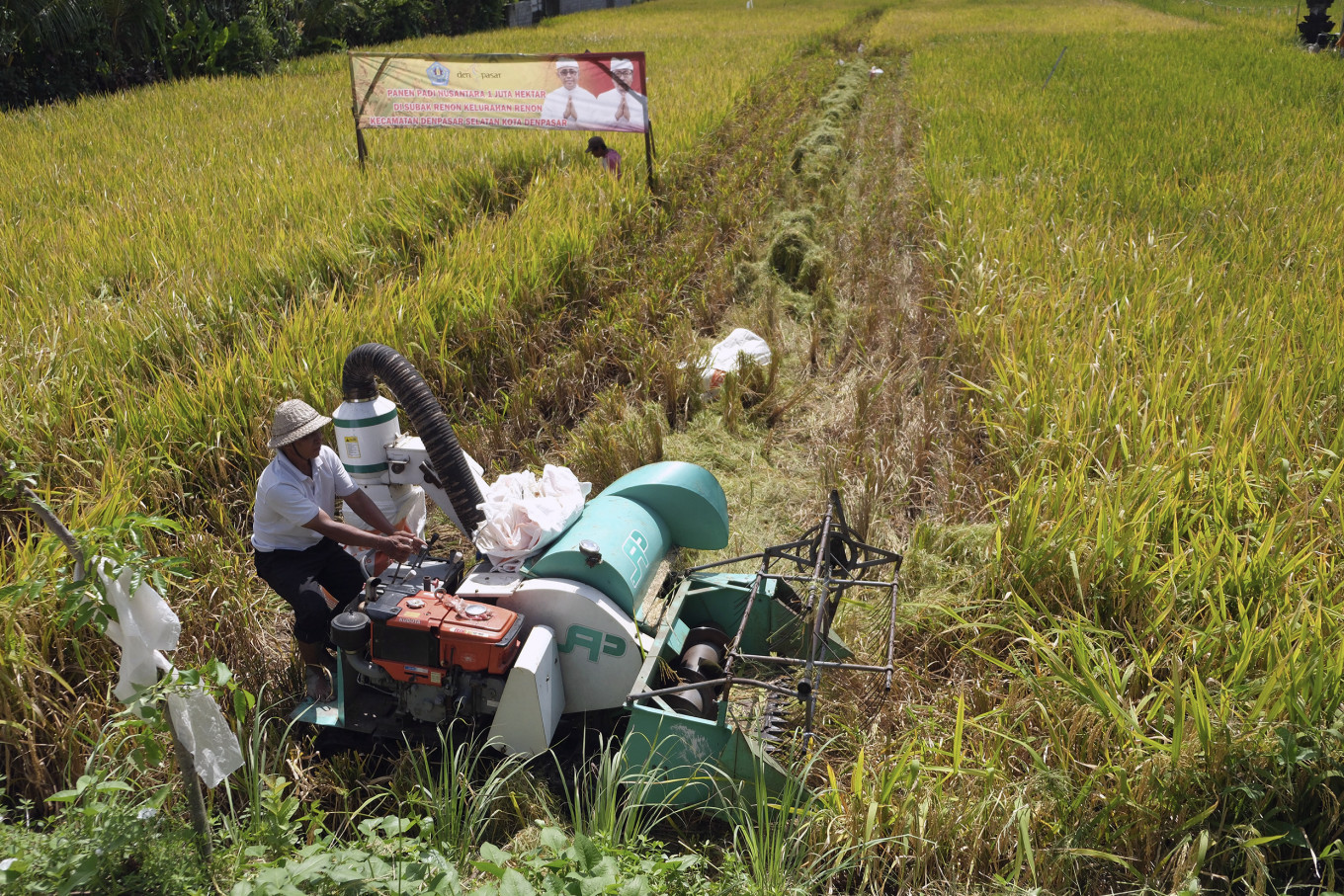Popular Reads
Top Results
Can't find what you're looking for?
View all search resultsPopular Reads
Top Results
Can't find what you're looking for?
View all search resultsData-driven policy for better food security
We need credible and accurate data to inform policies on food security toward inclusive recovery in today's challenging post-pandemic conditions.
Change text size
Gift Premium Articles
to Anyone
T
he world is facing an unprecedented global food security and nutrition crisis in the aftermath of the COVID-19 pandemic. The latest developments in the multifaceted challenges posed by the war in Ukraine, climate change, fragility, conflicts and violence also threaten efforts to achieve the 2030 Agenda for Sustainable Development.
The World Bank has reported that by 2024, the total number of people living in extreme poverty in fragile, conflict and violence (FCV) settings could surpass those in non-FCV settings. By 2030, it estimates that “59 percent of global extreme poor will be in countries affected by FCV” (World Bank, 2023).
It also says that “an additional 20 million people are now living in extreme poverty in countries affected by FCV since the onset of the COVID-19 pandemic”. Meanwhile, it estimates that severe food insecurity will “affect over 240 million people until 2027”, and that it “is twice as prevalent as in FCV-affected settings”.
Since the start of the pandemic, the global community has seen a series of major setbacks to stability in regions across the world. This can only be addressed with collective action.
In this regard, the Committee on World Food Security (CFS), an inclusive and collective platform of the United Nations’ Food and Agriculture Organization (FAO) mandated with achieving food security, will hold its first round of negotiations to discuss policy recommendations on strengthening data collection and analysis tools for food security and nutrition (FSN).
It is important to note that gaps still exist in particular data, which impact effective guidance on responsible action and in informing policymaking in today’s context of food insecurity in at least in three ways.
First, credible and accurate data is crucial to analyzing the root causes and symptoms as well as finding an immediate solution for inclusive recovery.
A recent High Level Panel of Experts (HLPE) report states that 92 countries have not conducted an agricultural census in the last 10 years, 52 have done so in the last 20 years and 10 countries have no agricultural census record at all. Meanwhile, 96 percent of countries do not have sufficient data to compute indicators for the productivity and income of smallholders, food loss, waste and land rights.
This is why this week’s CFS negotiations will be important in providing specific and actionable voluntary policy recommendations for strengthening countries’ capacity in the collection, analysis, dissemination and use of quality data.
Second, data protection and data security are critical to ensuring a trusted and credible global system.
Any initiative to establish an interoperable global system should promote greater digital transformation by finding the right balance between protecting the privacy and confidentiality of agricultural data and farmers’ economic interests reflected in that data, while making it possible to leverage the data’s potential for growth and innovation in the sector.
Noting that we are not working in vacuum, our efforts in data processing and policy formulation should be in line with the UN Secretary-General’s Roadmap for Digital Cooperation, which includes digital collaboration, digital public goods and digital inclusion.
Data neutrality should also be put forward as a means to guarantee that the data is interpreted in a neutral way, so as to avoid the politicization of data. This is also in line with fairness as one of the principles in the Secretary-General’s Roadmap for Digital Cooperation, which states that the UN uses data in a responsible and impartial manner.
Third is to thoroughly address the issue of the capacity and capability of developing countries.
Low data literacy and analysis skills at all levels, from data collectors and analysts to decision-makers and most importantly, the public as the ultimate beneficiaries of food security and nutrition policies, will be detrimental to digital cooperation.
This is “the elephant in the room” that should be resolved before entering into any negotiations.
In During the CFS negotiations, developing countries like Indonesia should promote and voice their need for more commitment to developing digital infrastructure, be it hard or soft infrastructure.
South-South and Triangular Cooperation (SSTC) should also be part of the conversation as a means of collaborating and cooperating on building the capacity of international, regional and national institutions, as well as data producers and users.
In conclusion, data-driven policies will be more pertinent to our policy and decision-making going forward.
Today’s multiple crises present a critical development challenge that threatens food security efforts. But if we look at the other side, it can also present us with an opportunity to drive better data for food security and nutrition.
***
The writer is an alternate permanent representative of Indonesia to the Food and Agriculture Organization (FAO). The views expressed are personal.











